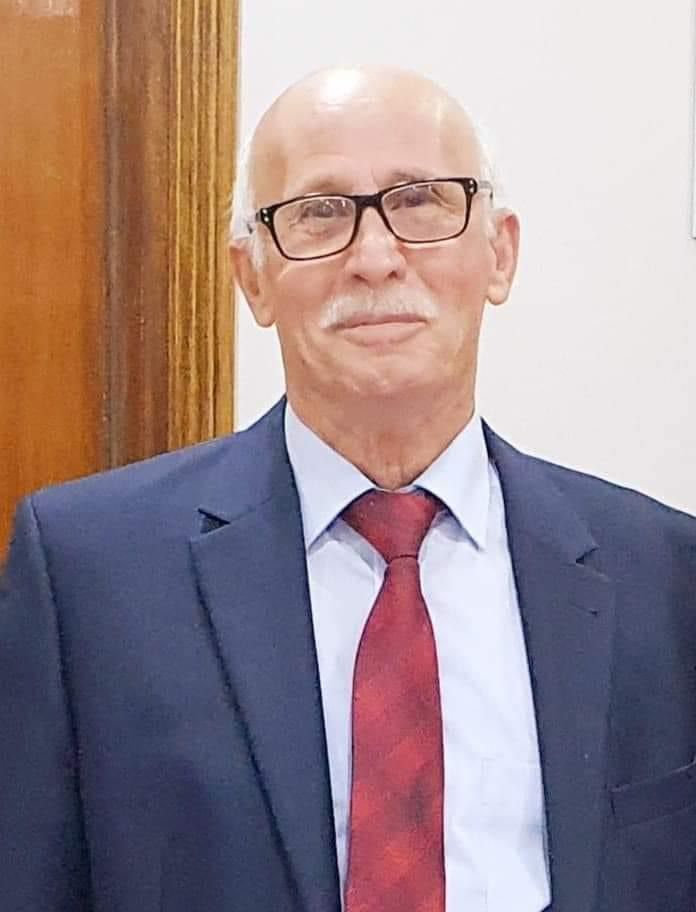Pir Khidr Sulaiman, a prominent Yazidi elder and intellectual, was a dedicated advocate for the coexistence of diverse nations and religions. He was known for his profound thoughts, eloquent writing, and tireless efforts to promote reconciliation, culture, and love within his community.
As the former president of the Lalish Cultural Center, a member of the Kurdistan Parliament’s second term, and a member of the Advisory Committee for Yazidi Affairs in the Council of Ministers, Pir Khidr served the Yazidi and Kurdish people with unwavering commitment. He was the first person to document Yazidi “Qewl” in written form and was a staunch defender of the Kurdish identity of Yazidis, challenging claims that Yazidis were not Kurds.
Pir Khidr also founded the Lalish Cultural Institution, contributed to preserving Kurdish folklore, and served as president of the Duhok Writers Union. His popularity and ability to foster unity made him a beloved figure, reflected in his repeated electoral successes. He worked closely with the Yazidi Spiritual Council to preserve the Lalish building as a cultural monument and maintained strong relationships with Kurdish political parties and civil society organizations. He spent significant time with President Barzani on delegations advocating for the Kurdish identity of Yazidis.
A Voice for Yazidis in the Kurdish Referendum
During the 2017 Kurdish referendum, Pir Khidr emphasized the integral role of Yazidis in the Kurdish struggle for self-determination. He stated:
“Yazidis are original components of this land. They have paid a heavy price. Just as Kurdistan was divided, Yazidis were divided along with it. Now, the referendum is a national issue, and Yazidis fully support the right of the Kurdish people to determine their destiny. After 1991, only a small portion of Yazidis fell within the Kurdistan Region’s borders, and they have long awaited their return to Kurdistan Region administration. Unfortunately, despite the hardships faced by Yazidis, the violations of Article 140 remain unresolved.”
Legacy and Contributions
Born in 1952, Pir Khidr passed away on November 15, 2021, at the age of 69. Reflecting on his life and achievements, Zaido Baader, a Yazidi advisor to the Kurdistan Parliament, shared:
“Pir Khidr came from a humble, religious family. He was the first to transcribe Yazidi ‘Qewl’ into written form with the blessing of Baba Sheikh Haji, standing firmly against claims that Yazidis were not Kurds or were Arabs. In 1979, he co-authored a book with Dr. Khalil Jundi, which was banned shortly after publication. As the founder of the Lalish Cultural Center and former president of the Kurdish Writers Union in Duhok, Pir Khidr’s love for Kurdish folklore and culture was unmatched. His dedication earned him widespread love and repeated electoral victories. He was instrumental in preserving the Lalish building as a cultural monument.”
Baader added:
“Pir Khidr worked harmoniously with Kurdish political parties and civil society, fostering unity. He spent three months in Baghdad with President Barzani, emphasizing the Kurdish identity of Yazidis. Even after his death, his contributions to culture and his tireless efforts remain deeply respected. His works are being collected and reprinted, thanks to the Barzani headquarters and the Lalish Center. One of his final wishes was the establishment of a scientific institute for Yazidi studies, which would annually train Yazidi students to contribute to the region’s cultural and historical heritage.”
Tributes from the Yazidi Community
Mahma Khalil, a Yazidi member of the Iraqi Council of Representatives, described Pir Khidr as an intellectual leader and a defender of Yazidi rights. He noted:
“Pir Khidr dedicated his life to documenting Yazidi history, promoting religious coexistence, and resisting the oppressive Baath regime. As a Yazidi Pir, he held a significant spiritual rank and symbolized loyalty and respect. His death was a profound loss for Yazidis, but his intellectual legacy endures. Through his writings and advocacy, he advanced the Yazidi message and contributed to the broader Kurdish cause.”
Khalil continued:
“Pir Khidr’s family and legacy remain a source of pride. His books testify to his contributions to the Yazidi religion and society. He believed in the unity of the Kurdish nation, coexistence, and the pursuit of independence. As we approach his death anniversary, we extend our gratitude to President Barzani and the institutions that honor his memory by preserving his works. It is vital for the new generation to learn from Pir Khidr’s writings and uphold his vision of a united and thriving Kurdistan.”
An Enduring Influence
Pir Khidr played a pivotal role in promoting Yazidi culture and advocating for education. He was the first to support teaching Yazidi heritage in schools, fostering awareness among students. In parliament, he worked tirelessly to build consensus among diverse parties, emphasizing teamwork and reconciliation.
As a sociologist and a man deeply connected to his people, Pir Khidr’s contributions to Yazidi and Kurdish society remain invaluable. His vision for coexistence and cultural preservation continues to inspire future generations.

